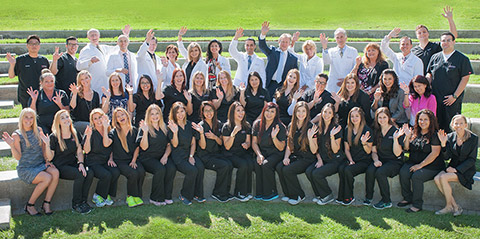
Many types of bacteria are classified as probiotics. They all have different benefits, but most come from two groups:
- Lactobacillus- This may be the most common probiotic. It can be found in many yogurts and soft cheeses. It helps to convert lactose and other sugars into lactic acid, which may be particularly helpful for those who are lactose intolerant.
- Bifidobacterium- This is a family of bacteria that has been studied for its ability to prevent and treat various gastrointestinal disorders, including infections, irritable bowel syndrome and constipation.
Some benefits of incorporating probiotic-rich foods and supplements into your diet are as follows:
- Optimizes Digestion- If you need a little digestive support, eating foods rich in probiotics (i.e., plain yogurt and miso) or taking probiotics in supplement form (i.e., L. acidophilus) might give you the boost you need by preventing lactose tolerance and helping the body digest milk products more comfortably and efficiently.
- Improves Absorption- Do you want to get the most nutritional value from the foods you eat? Taking a probiotic has been shown to optimize the synthesis of vitamins and minerals in the foods we eat. For example, probiotics are especially effective for helping the body absorb calcium and B vitamins.
- Safeguards against Infection- Maybe you never associated probiotics with their ability to protect and guard the body from foreign invaders. However, like a knight in shining armor, probiotics are credited as the body’s guardians when it comes to safeguarding it against all sorts of infections. For example, probiotics are linked to decreasing reoccurring yeast infections and urinary tract infections, as well as with defending against acne and E. Coli contamination.
- Strengthens Immunity- Did you know that taking a probiotic supplement and consuming probiotic-rich foods will increase and maintain healthy intestinal flora in your digestive tract? A healthy digestive tract is linked directly to a stronger immune system due to the increased production of one immune system responder, known as lymphocytes.
- Improves Bowel Movements- If your bowel movements aren’t as comfortable, regular, or complete as you would like, try probiotics. Not only do healthy bacteria prevent stool from being too loose (diarrhea) or too hard and difficult (constipation)—probiotics protect the body from travel bugs, such as traveler’s diarrhea and other travel bugs.
- Reduces Allergies- Although research is still being conducted and is not quite conclusive, a diet rich in probiotics has been credited with reducing the body’s allergic response. In fact, one study showed that expectant moms who took a probiotic birthed babies with 30-percent less infant allergies (i.e., allergy-induced asthma, inflammation, and childhood eczema).
- Promotes Detoxification- Probiotics are also known to help the body detoxify naturally. So rather than picking up a store-bought cleansing kit to aid detoxification or colon cleansing in the New Year, try incorporating probiotic-rich foods into your diet to promote a natural detox. In addition, probiotics have been linked to fewer instances of peptic ulcers and to reducing chronic bad breath (halitosis) because of their detoxifying abilities.
- Undoes the Damage of Antibiotics- When we take antibiotics to help us get over a viral infection, we sometimes kill many of the forms of healthy bacteria in our digestive tract. This is because the drugs don’t necessarily differentiate between healthy absorbing bacteria and illness-causing bacteria, which is why you may experience indigestion and diarrhea following a round of antibiotics. However, many times doctors will recommend a probiotic supplement to help replenish healthy bacteria in the digestive tract.
- Promotes Women’s Health- Like our digestive tracts, a woman’s vagina also requires a delicate balance of good and bad bacteria to function normally. If the balance is disrupted, often nasty infections—such as yeast infections or bacterial vaginosis (BV) will occur. However, taking an oral or vaginally inserted probiotic (i.e., L. acidophilius) can help maintain healthy vaginal bacteria and prevent reoccurring infections. If you suffer from frequent yeast or BV infections, talk to your doctor about taking a probiotic.
- Prevents Urinary Tract Infections- The urinary tract also requires a balance of good and bad bacteria (similar to the vagina and digestive tract). This is why taking probiotics can prevent frequent urinary tract infections, particularly after taking antibiotic drugs. Studies from the University of Maryland Medical Center recommend taking probiotics to prevent bad bacteria from overtaking the urinary tract—while colonizing the urogenital tract with adequate healthy bacteria.
The information provided is for general interest only and should not be misconstrued as a diagnosis, prognosis or treatment recommendation. This information does not in any way constitute the practice of medicine, or any other health care profession. Readers are directed to consult their health care provider regarding their specific health situation. Marque Medical is not liable for any action taken by a reader based upon this information.

